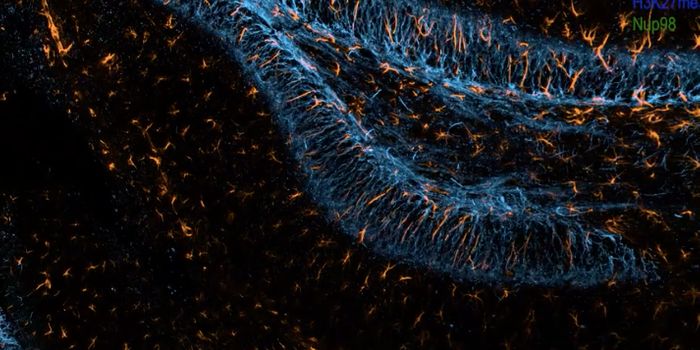Wheat sensitivity and gluten free foods have become a popular topic subject to a lot of debate. While celiac disease has been definitively linked to wheat intolerance, many people without a diagnosis of the disease report sensitivity to wheat.
A new study in the journal Gut by researchers at Columbia University Medical Center (CUMC) now suggests that some people have a weakened intestinal barrier, and after ingesting wheat, those individuals experience inflammation throughout their body. These findings may come as a relief to lots of those who have struggled to make sense of their condition.
"Our study shows that the symptoms reported by individuals with this condition are not imagined, as some people have suggested," explained one author of the work, Peter H. Green, MD, the director of the Celiac Disease Center and a Professor of Medicine at CUMC. "It demonstrates that there is a biological basis for these symptoms in a significant number of these patients."
Celiac disease, explained in the short video below, is an autoimmune disease resulting from genetic susceptibility. When people with the disorder consume grains like wheat, barley or rye, their immune system attacks the lining of the small intestine, resulting in a range of gastrointestinal problems like bloating, abdominal pain and diarrhea.
However, many people who do not display any of the hallmarks of celiac disease in their tissue, blood or genetic makeup still have symptoms like those seen in celiac. Those include the gastrointestinal symptoms, but also systemic issues like mood disturbances, fatigue or cognitive difficulties following ingestion of wheat, barley or rye. This condition has been described as non-celiac wheat sensitivity (NCWS) – in which the grains cause acute, systemic immune activation. No biomarkers exist for the disorder, but it’s estimated that it has around the same prevalence as celiac disease – one percent of the U.S. population, about three million people. In the longer video below, Michael Albertson, MD of UCLA Health discusses both celiac disease and non-celiac gluten sensitivity.
To learn more about the condition, the investigators compared several groups – 40 healthy people, 40 with celiac disease and 80 with NCWS. They found that although celiac disease can cause extensive intestinal damage, no indication of innate systemic immune activation was seen (by analyzing blood) in the group with celiac disease. That suggests that celiac patients are able to neutralize microbes or microbial components that may pass through the damaged intestinal barrier using their intestinal immune response, thus preventing a systemic inflammatory response.
The group with NCWS, however, was very different. They carried a marker of intestinal cellular damage that was different from celiac patients but still correlates with indicators of acute systemic immune activation. That data suggests that systemic immune activation observed in NCWS is associated with an increased movement of microbial and dietary components from the gut, where they should normally stay, into circulation, where they can result in immune activation. That translocation is due in part to damage to and weakening of the wall of cells that forms the intestinal barrier.
"A systemic immune activation model would be consistent with the generally rapid onset of the reported symptoms in people with non-celiac wheat sensitivity," said the leader of the study, Armin Alaedini, Assistant Professor of Medicine at CUMC.
Interestingly, NCWS patients that eliminated wheat and related grains from their diet for six months actually normalized their levels of both immune activation and intestinal cell damage markers. Using detailed questionnaires, the scientists found that those changes were linked to big improvements in all symptoms.
Dr. Alaedini added, "The data suggest that, in the future, we may be able to use a combination of biomarkers to identify patients with non-celiac wheat sensitivity, and to monitor their response to treatment."
If you'd like more information, check out the
website of the Celiac Disease Center at Columbia University.
Sources:
AAAS/Eurekalert!,
Columbia University,
Gut









